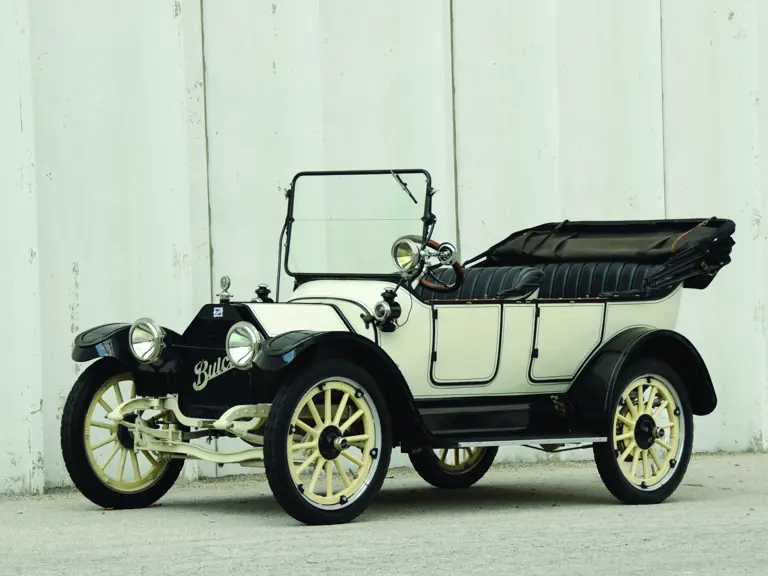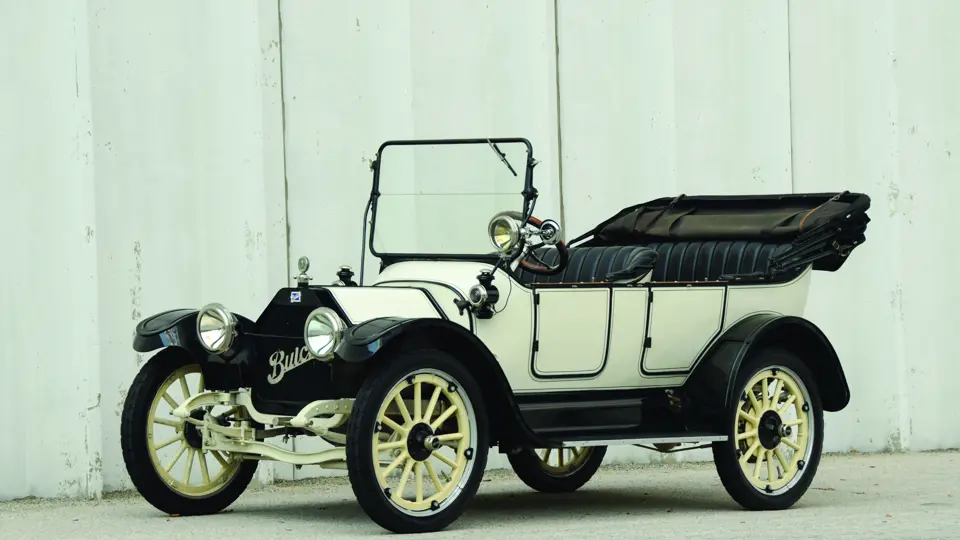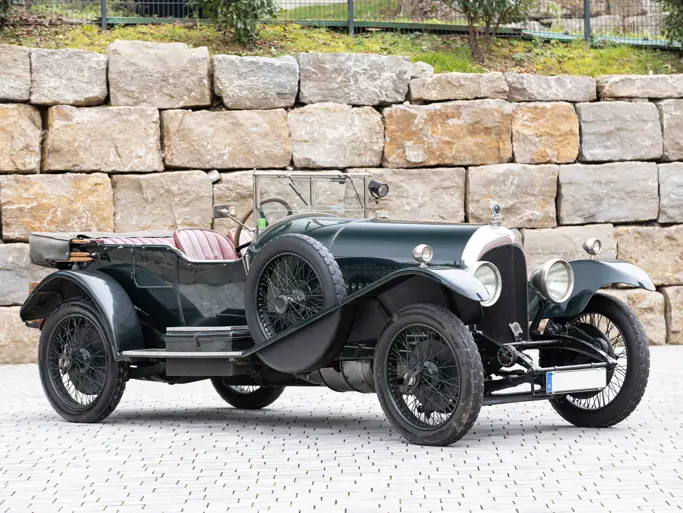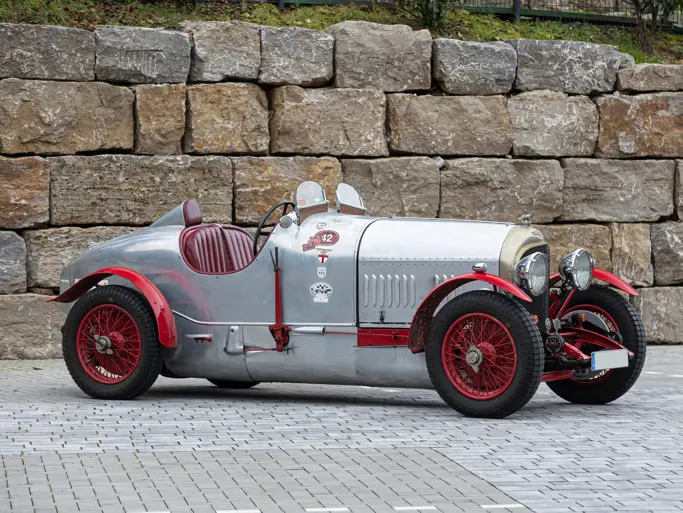Buick’s offerings for 1914 consisted of just a single series, the Series B, though somewhat confusingly, the Series B was made up of a variety of sub models, configurations, and engine offerings. At the entry level of the catalog, the B-24 and B-25 shared a 105 inch wheelbase and a 165 cubic inch four-cylinder engine. Next in line came the B-35, B-37 and the fully enclosed B-38 coupe featured a 112 inch wheelbase with motivation coming from a slightly larger 221 cubic inch four-cylinder. The flagship model was the B-55 which featured the marque’s first six cylinder engine, displacing 331 cubic inches and rated at 48 horsepower.
The common thread for all Series B Buicks was the valve-in-head engine with its distinctive exposed valvetrain, and all models (with the exception of the B-38) were available as either a roadster or a handsome touring car. Thanks to Buick being part of General Motors, all 1914 models featured the Delco System electric starter and lamps originally pioneered by Cadillac in 1912. The B-25 cost $1,050 in 1914, when compared to the Ford Model T at $440, made the Buick was a significant step up in the market. Just over 21,000 Buicks found homes in 1914, demonstrating ever growing strength of Buick and the increase demand from the middle class for more powerful and well equipped motorcars.
This tidy 1914 Buick B-25 Touring Car is a very usable and attractive example that has been treated to a good quality restoration some time ago, having now taken on a pleasing patina. Two-tone black and white paint gives it a handsome and striking look. Paint quality is quite good, showing some age since the restoration was completed, but remaining quite attractive and charming. By 1914, the brass era was winding down, and nickel plating had become the standard embellishment. This example wears nice nickel-plated headlamps, wheel hub covers and trim on the duel carriage lamps. A Buick branded moto-meter sits atop the black painted radiator, which also proudly brandishes the Buick script. A very nice period appropriate spot light is affixed to the windscreen frame. Blackwall tires are fitted to the split rim artillery wheels, with good condition wooden spokes painted white to match the main body. The canvas top is in good condition and it comes with a complete set of side curtains; ideal for those looking for adventure in all weather conditions.
The interior is very inviting, with lovely old black leather showing some light creasing and patina that is consistent with the remainder of the car. Floors are correctly lined with linoleum up front and carpet in the rear, all showing in good order. Instrumentation is of course limited for a car of this era, but the basics are covered with a period correct Stewart speedometer, an ammeter and a great Waltham clock adorn the firewall. The large diameter wood rimmed steering wheel is excellent, with nicely polished nickel spokes and controls for throttle and spark advance.
Buick’s 165 cubic inch four-cylinder engine is in excellent condition under the hood. The cylinders are cast in pairs, and the exposed valvetrain is a fascinating feature of these engines. The detailing is largely correct with period fittings and plumbing, with an emphasis on tidy, reliable service. This wonderful old Buick is a charming and fairly rare example from GM’s early days. It is an enjoyable, honest car that is very well suited for touring thanks to the sorted mechanicals, full weather equipment, and charming patina. You’ll be enamored with this car’s pretty color combination and classic touring car body style. This Buick is a great choice for Horseless Carriage Club of America tours, AACA events, or casual show. The more conventional controls and sliding-fork gearbox make it more approachable for newcomers to nickel-era cars, and the addition of electric start makes it easy to live with for regular use or long-distance journeys.



 | Auburn, Indiana
| Auburn, Indiana


